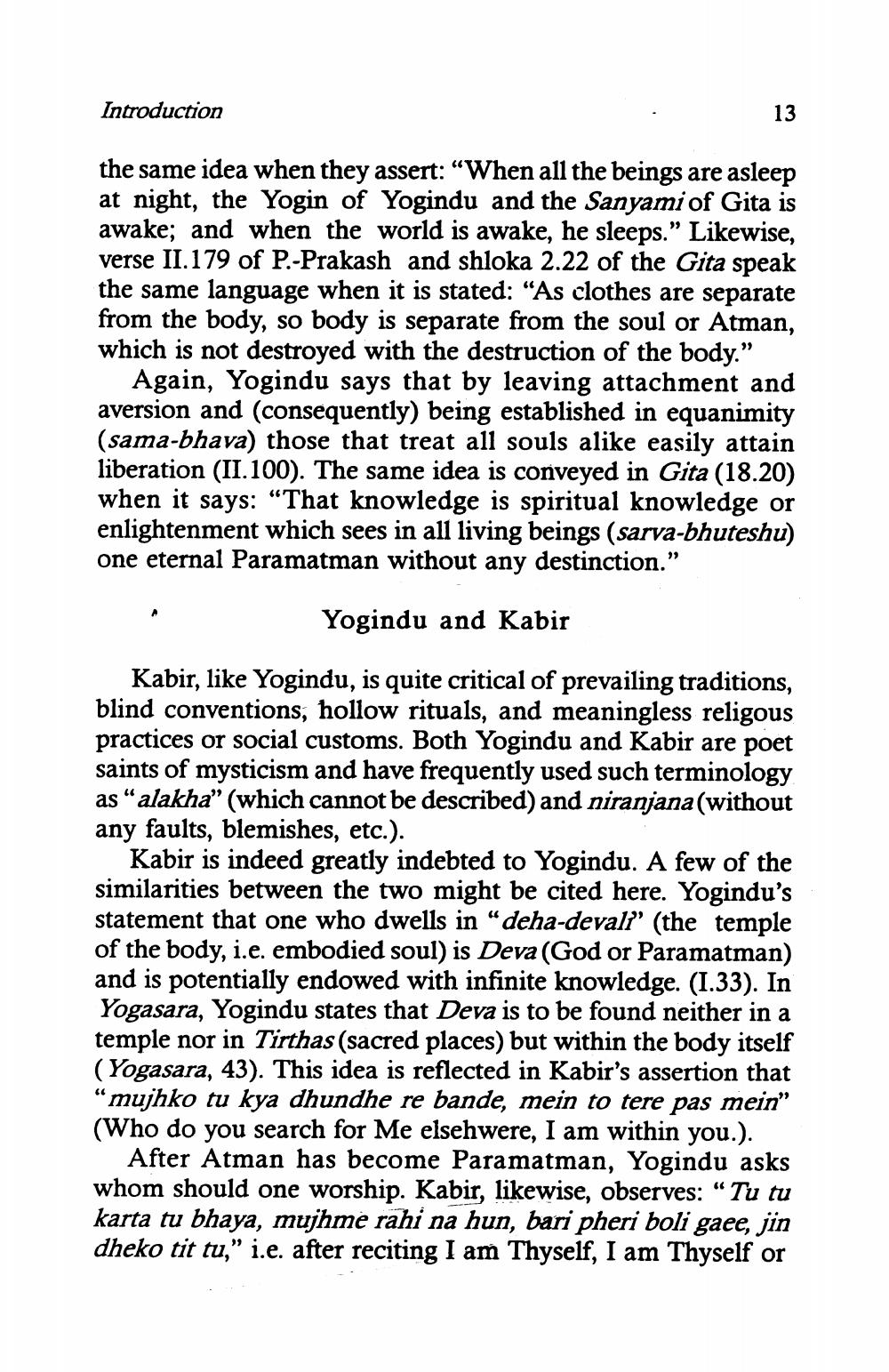________________
Introduction
13
the same idea when they assert: “When all the beings are asleep at night, the Yogin of Yogindu and the Sanyami of Gita is awake; and when the world is awake, he sleeps.” Likewise, verse II.179 of P.-Prakash and shloka 2.22 of the Gita speak the same language when it is stated: “As clothes are separate from the body, so body is separate from the soul or Atman, which is not destroyed with the destruction of the body."
Again, Yogindu says that by leaving attachment and aversion and (consequently) being established in equanimity (sama-bhava) those that treat all souls alike easily attain liberation (II. 100). The same idea is conveyed in Gita (18.20) when it says: “That knowledge is spiritual knowledge or enlightenment which sees in all living beings (sarva-bhuteshu) one eternal Paramatman without any destinction.'
Yogindu and Kabir
Kabir, like Yogindu, is quite critical of prevailing traditions, blind conventions, hollow rituals, and meaningless religous practices or social customs. Both Yogindu and Kabir are poet saints of mysticism and have frequently used such terminology as “alakha” (which cannot be described) and niranjana(without any faults, blemishes, etc.).
Kabir is indeed greatly indebted to Yogindu. A few of the similarities between the two might be cited here. Yogindu's statement that one who dwells in “deha-deval?" (the temple of the body, i.e. embodied soul) is Deva (God or Paramatman) and is potentially endowed with infinite knowledge. (I.33). In Yogasara, Yogindu states that Deva is to be found neither in a temple nor in Tirthas (sacred places) but within the body itself (Yogasara, 43). This idea is reflected in Kabir's assertion that "mujhko tu kya dhundhe re bande, mein to tere pas mein" (Who do you search for Me elsehwere, I am within you.).
After Atman has become Paramatman, Yogindu asks whom should one worship. Kabir, likewise, observes: "Tu tu karta tu bhaya, mujhme rahi na hun, bari pheri boli gaee, jin dheko tit tu," i.e. after reciting I am Thyself, I am Thyself or




